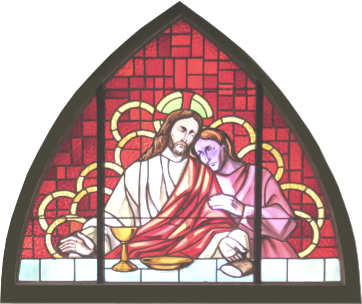Opinion: Churches working to help in COVID-19 fight, but need common sense from government
by Brett Salkeld, PhD, theologian for the Archdiocese of Regina.
It is difficult for religious communities to push common sense while following safety protocols that are anything but, writes Brett Salkeld.
To any person who goes to church Sunday morning these days after shopping Saturday afternoon, the dramatic difference between the safety protocols observed at the grocery store or pharmacy and those observed at the church is jarring. There have been times when I have gotten home from the store thinking, if I get COVID, I’m pretty sure that trip was where I got it.
The feeling I have at church is precisely the opposite. We are so meticulously safe, so masked, so distanced, so disinfected that it seems highly unlikely anyone could contract the virus from attending the service while we adhere to best practices.
When I go to church, large sections of my small local parish are roped off. With only 30 people allowed to attend, we are able to appropriately distance in a fraction of our building. My heart breaks to watch our pastor having to turn people away at the door due to some confusion about sign-ups and capacity while there are dozens of empty pews sitting unused.
Last spring, after leading with a hard-cap policy as regards the number of people permitted in places of worship, the Government of Saskatchewan met with faith leaders and subsequently adopted a very reasonable policy based on percentage of building capacity. Small country churches that rarely accommodate more than 30 people on a given Sunday are not the same thing as large city congregations whose buildings often hold more than 1,000. Having the same limit apply to both these scenarios made no sense, and the government was correct to adjust policy accordingly.
But in mid-December, the government reverted to its original policy without explanation or consultation. Since that time, faith leaders across the province have been pushing, unsuccessfully, for a return to a percentage of capacity policy, one commensurate with what businesses are currently allowed.
Many have remarked upon the value of religion for society, especially in times of crisis. When people are lonely or afraid or looking for answers, the wisdom and the community of our religious traditions can be a lifesaver. What has not been as widely noted is the role of most religions in protecting people from extremism, polarization and conspiracy theories.
On top of the viral pandemic, we are also facing a virtual pandemic, one consisting of online misinformation and moral panic. And this second pandemic is amplifying the death count of the first. It is a genuine threat to public health, to say nothing of political stability and our capacity to live together as communities.
In the face of what some have called an “infodemic,” a good chunk of our work at the Archdiocese of Regina these days is to direct our people to reliable sources, to encourage best practices with respect to public health — not only in our parishes, but in the wider world — and to reassure people of the basic wisdom of public health measures. This is largely a thankless task, one that earns us charges of failing in our duty to defend the Church against government, which is imagined to be using the pandemic as a pretext to strip believers of their rights and freedoms.
The best strategies for promoting public health have recognized the need to work with and not against religious communities. After all, we share the same goal of protecting our communities, especially the vulnerable, from disease and death. But the current policy of the Saskatchewan government puts religious authorities in a very awkward position.
Churches are required to enforce inconsistent protocols on behalf of the government that give those in our communities who are already suspicious of the government’s motives all the evidence they need to not trust public health measures — not to mention more motivation to pursue ever wilder and more conspiratorial claims on social media. The anxiety and distress this leads to is itself becoming a public health crisis, to say nothing of the fact that such people are often highly suspicious of any vaccination campaign to end the pandemic.
It is time for the government to recognize that, not only are the current restrictions on places of worship inconsistent, but that such inconsistency is itself a threat to public health. It is increasingly difficult for religious communities to encourage common sense while they are required to follow and enforce safety protocols that are anything but.
Brett Salkeld is the theologian for the Archdiocese of Regina.
